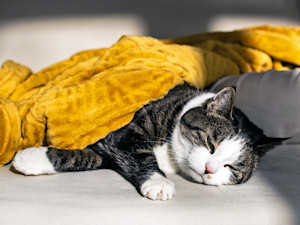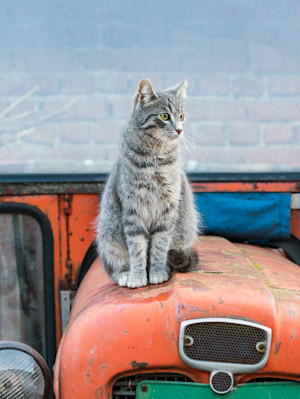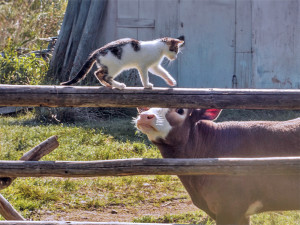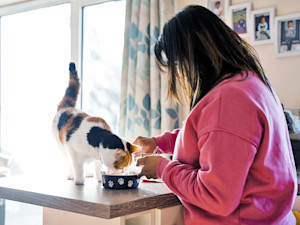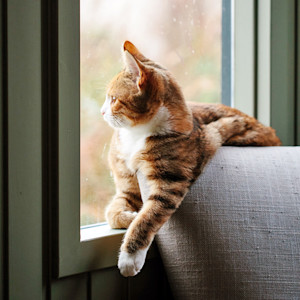2 Oregon Cats Died After Contracting Bird Flu From Raw Food
A recall has been issued for the contaminated product.
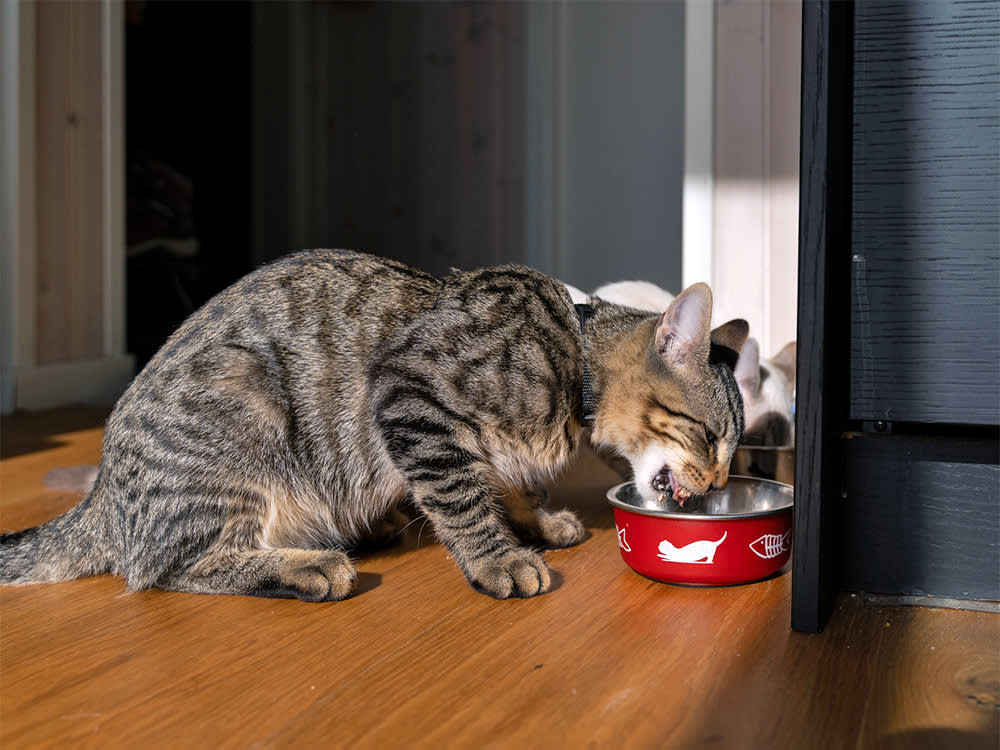
Share Article
UPDATE: The U.S. Food and Drug Administration (FDA) has also issued a recall for the Wild Coast Boneless Free Range Chicken Formula. The FDA widened the recall to include the following lots: #22653, #22641, #22639, and #22672.
This month, two cats from separate households in Oregon contracted bird flu; tragically, their symptoms were so severe that they had to be euthanized. Friday, after a series of tests in state and federal laboratories, officials confirmed that the cats contracted the virus from a raw food brand.
Samples from both the cats and open containers of pet food were taken by the Oregon Department of Agriculture (ODA). They revealed that both cats had consumed Wild Coast Raw, a brand of cat food that tested positive for bird flu. Further testing by the Washington State Department of Agriculture (WSDA)opens in new tab found that unopened containers of Wild Coast Raw were also contaminated, leading the WSDA to issue a recall.
Recalled lots
The WSDA recalled two lots of the Wild Coast Boneless Free Range Chicken Formula. If your cat’s food is labeled with lot number 22660 or 22664, with a best by date of 12/2025, it is recommended that you immediately dispose of the product. The lot number and best by date can be found on a sticker on the lid.
How to keep your cat safe
While the above lots are the only products currently confirmed to be contaminated, experts are advising against feeding pets raw food as bird flu cases increase. Last month, five cats in Los Angeles were infected with H5N1 after eating Monarch Raw Pet Food. In December, another Oregon cat passed away after contracting bird flu from a frozen raw pet food sold by Northwest Naturals. And as H5N1 spreads, some veterinarians worry the problem could get worse.
“Raw food still is always going to be a risk, not just for this virus, but really any pathogen that can pass through that meat, that product, into the animals,” Dr. Ryan Scholz, the state veterinarian at the Oregon Department of Agriculture, told KGW.opens in new tab “Cooking, pasteurization is designed to kill those bacteria and activate the viruses. Any time you remove that stuff from the process, that's going to be a risk.”
Cats should also avoid drinking unpasteurized milk; raw milk has similarly been linked to the spread of avian influenza. Pets and people should avoid contact with wild birds, and some veterinarians recommend keeping cats inside entirely.
Symptoms of bird flu in cats
With bird flu cases on the rise, it’s important to know the signs to look out for — especially if your cat has access to wild animals or eats a raw food diet. “Pets with H5N1 infections may have a fever, lethargy, low appetite, reddened or inflamed eyes, discharge from the eyes and nose, difficulty breathing, and neurological signs like tremors, seizure, incoordination, or blindness,” the WSDA shared. If your cat shows these symptoms, they should receive veterinary attention immediately.
According to the CDC, the current public health risk of bird flu is low.opens in new tab The WSDA adds that no human infections have resulted from contact with contaminated pet food, but caution should be taken; pet parents should thoroughly wash their hands after handling raw food and sanitize any surfaces the food touched. If you have symptoms of bird flu — including cough, body aches, fever, and nausea — after handling a contaminated product, you should visit a healthcare provider as soon as possible.

Sio Hornbuckle
Sio Hornbuckle is the Assistant Editor at Kinship, where they frequently write for the site. As a writer, they specialize in pet news, animal science, and pop culture. They live in New York City with their cat, Toni Collette.
Related articles
![Cat sleeping at home in the sun.]()
Bird Flu Is Infecting Cats Across The Country—Including Indoor Ones
Nearly 40 domestic cats have been infected with bird flu—two of which have never been outside.
![Outdoor cat sits on a tractor outside.]()
Cats May Become Bird Flu Carriers, New Study Warns
With bird flu cases on the rise, scientists are worried the virus could mutate.
![Calf looking up at a cat on a farm.]()
Cats Who Consumed Raw Milk Died From Bird Flu, Reports the CDC
Unpasteurized milk can transmit avian influenza from cows to mammals.
![Woman feeding her cat in the kitchen at home.]()
5 Cats Have Reportedly Been Infected with Bird Flu from Raw-Food Brand
Here’s everything you need to know.
![Cute cat looking outside the window.]()
Cats Should Be Kept Indoors to Avoid Bird Flu, Veterinarians Warn
The recommendation comes after multiple cats passed away from the virus.
